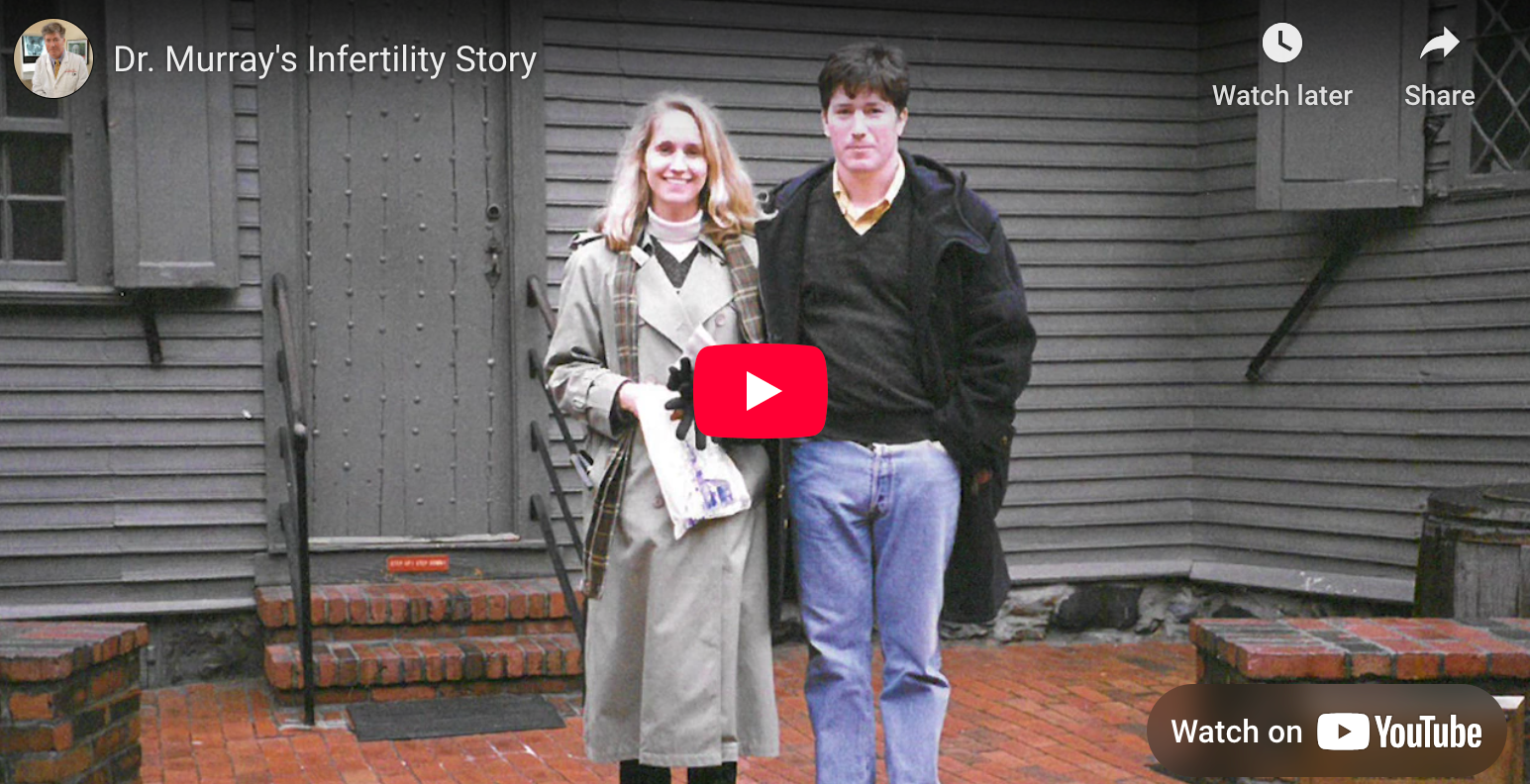Before I became a fertility doctor, my approach to medicine was powerfully shaped by our own battle with infertility.

When I got to medical school, I really didn’t have any intention of becoming a reproductive endocrinologist (fertility doctor). But something curious happened to me along the way. When I was studying in the library I just happened to be studying next to a row of magazines called Fertility and Sterility, which is one of the two big journals for our field.
I loved the elegance of the reproductive endocrinology system. It seemed amazing to me that you could hold a human egg basically in your hand. You could see sperm under a microscope, and you could see fertilization take place.
A big influence in me wanting to become a fertility doctor was my own personal experience – and my wife’s experience – with infertility. We were in med school and decided it was time to try and get pregnant. We did what everybody does. We tried for a while on our own, but pretty quickly it became apparent that something was wrong. She went to her OB/GYN and the OB/GYN told her, “Don’t worry about it, there’s nothing really wrong.”
We got a second opinion with a fertility doctor who was able to determine that my wife was not releasing an egg every month. She was not ovulating. So we tried medicine for that for a few months. And when she ovulated but didn’t get pregnant, we went for further testing.
IVF and repeated failures
For us, it was either that we were going to have no children or we were going to need in vitro fertilization (IVF). And I can tell you, that’s a really scary prospect. It was expensive, and we had very little money. We decided that if we didn’t try we would forever regret not trying.
So we tried, and it failed. We didn’t get pregnant with the first batch of embryos we put back in, the second or the third. We had to go through a second stimulation and didn’t get pregnant with any of those embryos either.
When we got to residency, we ended up doing another IVF cycle and it too failed. We still had two frozen embryos left and we decided to transfer them even though we knew that the chance was very small for them working. And lo and behold, she got pregnant. And it was, I will tell you, great. We were so happy. We were so immediately content. We were already planning for the future. My wife was not even five weeks pregnant and she was reading What to Expect When You’re Expecting.
She had an appointment with her reproductive endocrinologist and Kristi called me and said, “So, I went in and they said, ‘I see the baby. It looks completely normal. It has a heartbeat.’”
And then she said the nurse came over the doctor’s shoulder and tapped him and he scanned a little closer and looked a little harder and said, “Oh…oh,” and then gave her the bad news that indeed the pregnancy was there and it had a heartbeat. It just wasn’t in the uterus. So they gave her a shot of methotrexate, which is a medicine designed to dissolve the pregnancy, no matter where it is.
A painful loss and a flicker of hope
That night I was on call at the hospital again when she called me in excruciating pain. I told her to go downstairs and wait by the back door, leave the door unlocked and I would send a friend over to come get her. She did like she was told, except she fell and hit her head because she was passing out from bleeding internally.
Fortunately, my friend Terry Harper arrived in time and was able to get her to a car. We had called ahead to the hospital and she was taken immediately to the operating room. She had lost half her blood volume, but they were able to get control of the bleeding and save her.
What we as OB/GYNs sometimes regard simply as a medical necessity – a need to get an ectopic pregnancy out – and even though we knew that it had to come out, it was still a huge loss. And that forever changed the way I look at any kind of pregnancy loss. As hard as that experience was, it was probably good for me as a doctor to go through something like that. It certainly helps me understand what my patients are going through.
Unique treatment leads to success for our fertility doctor
We knew then that pregnancy could happen, and that actually gave us the courage to try again. And I will forever be grateful to Dr. Bill Meyer who guided us through what we thought would be our final IVF cycle. We were finally able to get pregnant and have not one but two children. He focused more on the quality of the embryos rather than the quantity, and we were successful.
I learned a valuable lesson right before I entered fellowship about treating each patient in a unique way, which is exactly what he did for us. I can’t imagine doing this job today without the knowledge that I gained through all those experiences.
Expert Treatment. Total Commitment. TRM.

At Tennessee Reproductive Medicine, you’ll find a team of professionals dedicated to delivering the highest quality of compassionate fertility care.
